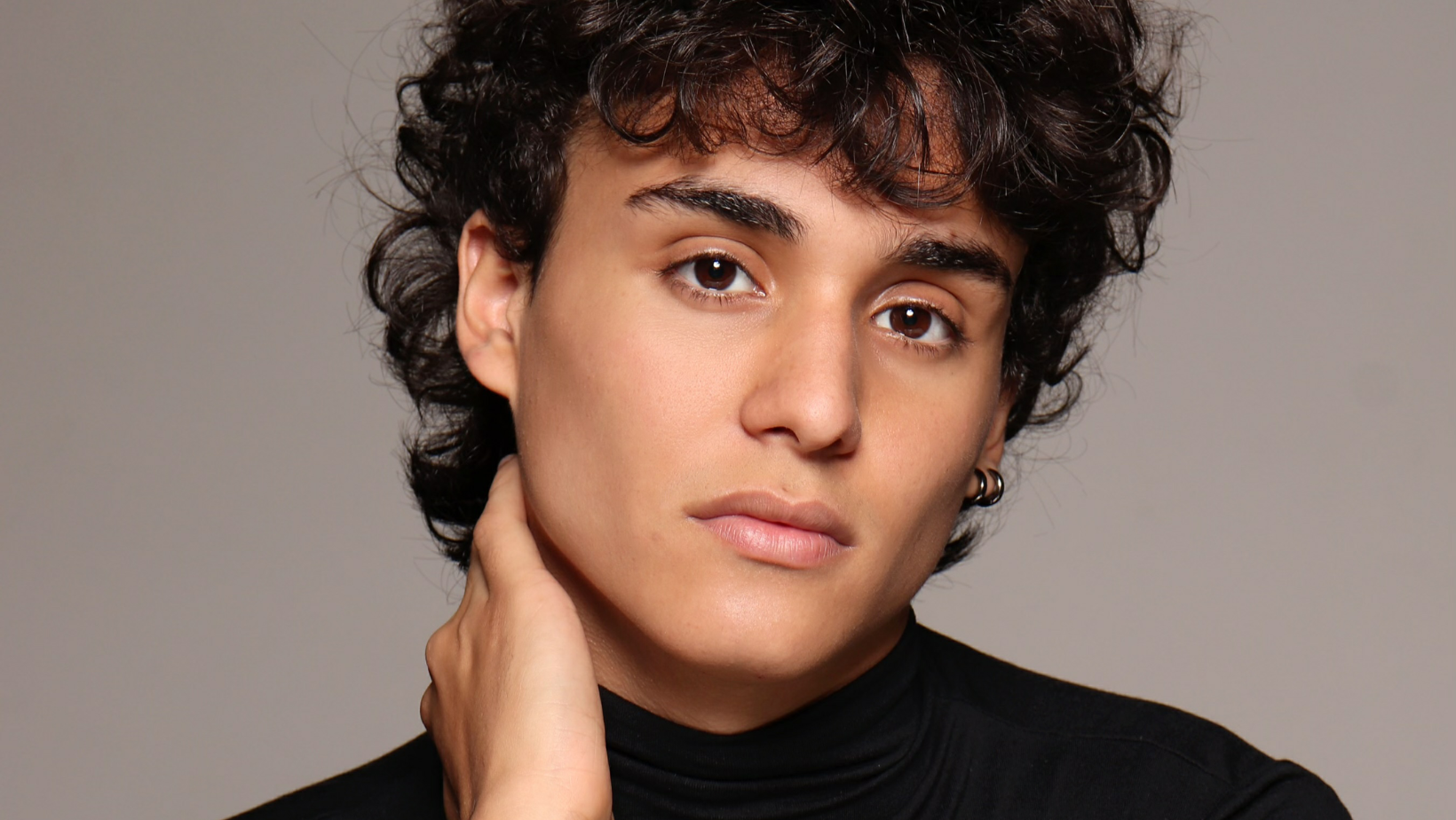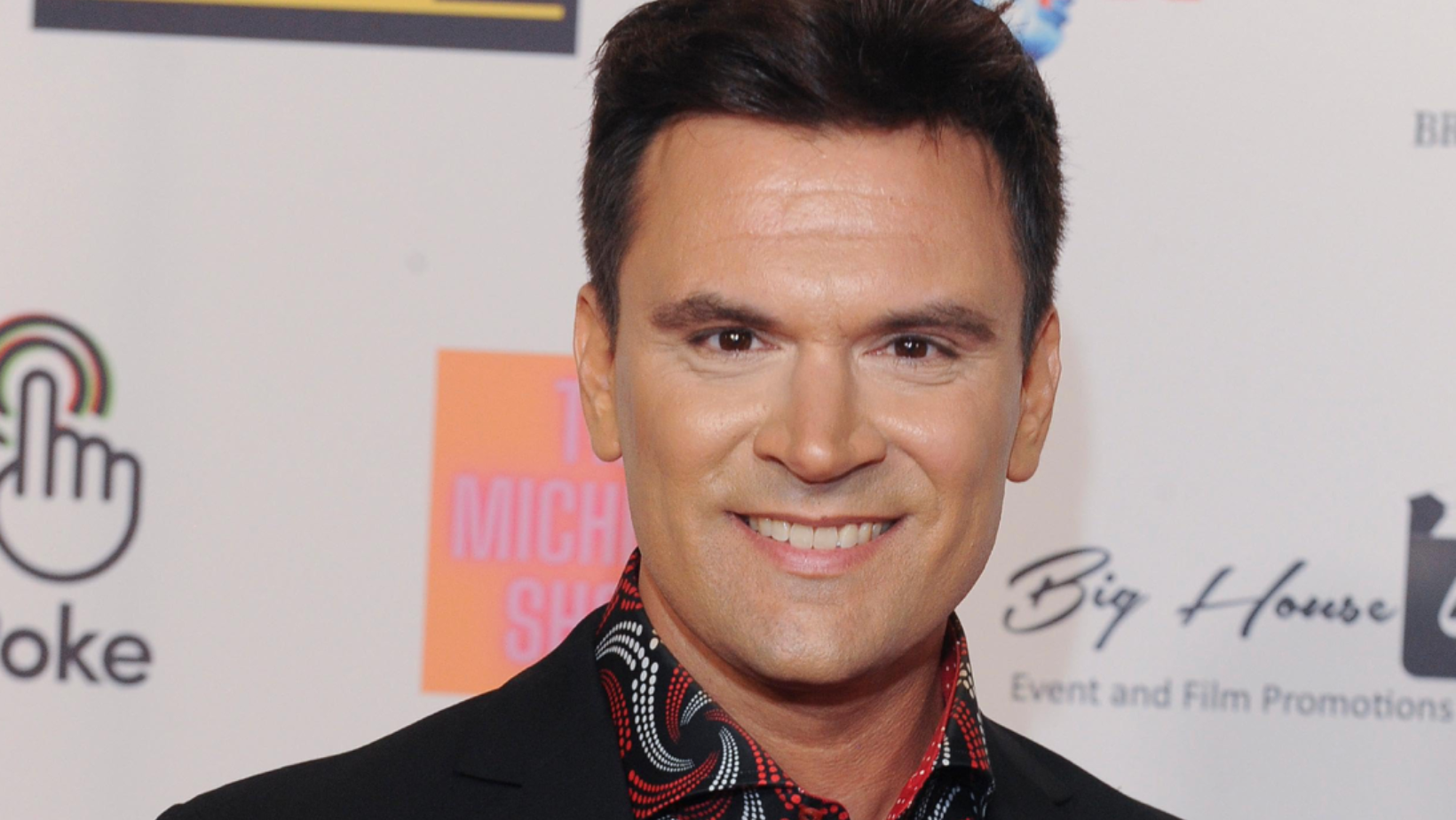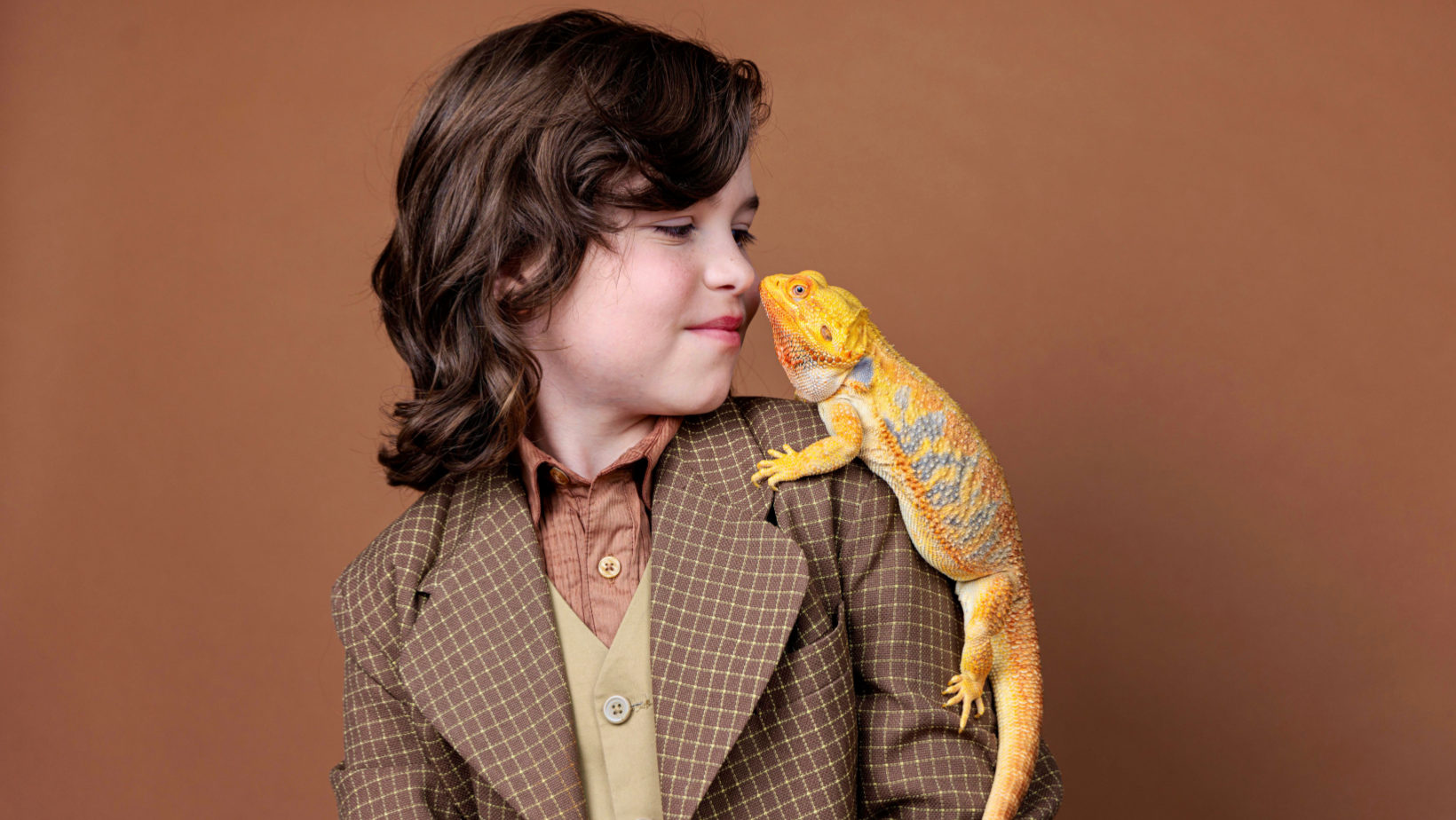Pedro Goifman, highlight of the series “BA: The Future is Dead” (MAX), is preparing for a series of new projects in 2024. In addition to shining in the short film “Atravessaria a Cidade Toda De Bicicleta Só Pra Te Ver Dançar” , which was shown at an Oscar qualifying festival, Pedro participated in “True Ghost Stories for Children” (Cine Brasil TV). He also has debuts planned in “Tarã”, a Disney+ series with Xuxa and Angélica, “SIM”, his first feature as a director, and “Eclipse”, a film by Djin Sganzerla, where he will play one of the most challenging roles of his career .
Recently, Pedro spoke openly about his struggle with depression, diagnosed at the age of 14. He highlights that playing his characters has been an important part of his healing process. Expectations for a second season of “BA: The Future Is Dead” are high , as the series was one of MAX’s most watched content in Latin America. Pedro expressed his desire to continue playing Tomás, a character he describes as one of the most significant in his career.
In “Eclipse”, Pedro plays Felipe, an 18-year-old son of a farmer, described as a difficult person. The film is in the final stages and should premiere in 2024. In the short film “Atravessaria a Cidade Toda de Bicicleta Só Pra Te Ver Dançar”, Pedro experiences LGBT love and the beauty of first times, having been a success at the Curta Cinema festival.
Pedro also spoke about his experience working on “Tarã”, highlighting the close relationship he developed with Angélica during recording. In addition to his roles as an actor, Pedro is venturing into directing. He is about to finish his feature film “SIM” and plans to produce “Adrenalina”, a short film he recently wrote. He is also working on the script for “Terra Roxa” with director Maurício Abbade , in which he will star. Despite personal challenges, Pedro continues to dedicate himself to his career and inspire others with his courage and talent.
Pedro, you have already acted in successful series such as “BA: The Future is Dead” and now you have several projects in progress. What attracted you most to the role of Tomás and what was it like playing this character?
When I read the script for “BA: The Future is Dead” knowing that I was going to play Tomás, it was love at first sight. The character is everything an actor could want: extremely difficult, charismatic, has fun, dramatic, tense scenes and even a little action! This complexity was what attracted me most. I was excited at the time. On the other hand, I also realized that bringing such a complex character to life would not be an easy task. That’s why I focused on my studies. The series is inspired by a Rafael Coutinho comic, so, in addition to reading and re-reading the script many times, I studied the character he had created in the comics a lot, identifying mannerisms that I could add to my construction, without losing my creativity, personality and inventiveness as an actor. The directors and screenwriters were always very open to improvisations and I was able to create a lot of Tomás’s stuff. I’m in love with him!
In “Eclipse,” you play a character you’ve described as one of the most challenging of your career. Can you tell us more about it and why it was so difficult for you?
Felipe is a character who appears little in the plot of “Eclipse”, which already poses a difficulty: the character needs to make sense, go from one place to another, it is interesting that there is some type of transformation. Building this in an interesting way with little screen time is a challenge. Furthermore, he is a man who represents something very bad. I wouldn’t respect him if he were a real person; therefore, interpreting it truthfully becomes even more difficult. Furthermore, I have a scene with a very heavy dramatic charge, one of the most difficult I have done in my career.
Felipe was certainly a big challenge for me, but I was proud of my performance. I have a lot of confidence in the work of Djin Sganzerla, director and screenwriter, and I’m sure it will be a great film !
What was it like working with Xuxa and Angélica in “Tarã”? You mentioned that you developed a strong connection with Angélica. How did this relationship affect your performance in the series?
Working with Xuxa and Angélica in “Tarã” was great. They, like the rest of the crew and cast, are very experienced and I was able to learn a lot from them in the process. Angélica and I played mother and son and our characters, Niara and Kauê, had a very strong complicity in the story. We both connect a lot and I’m sure our affection will be visible on the screen.
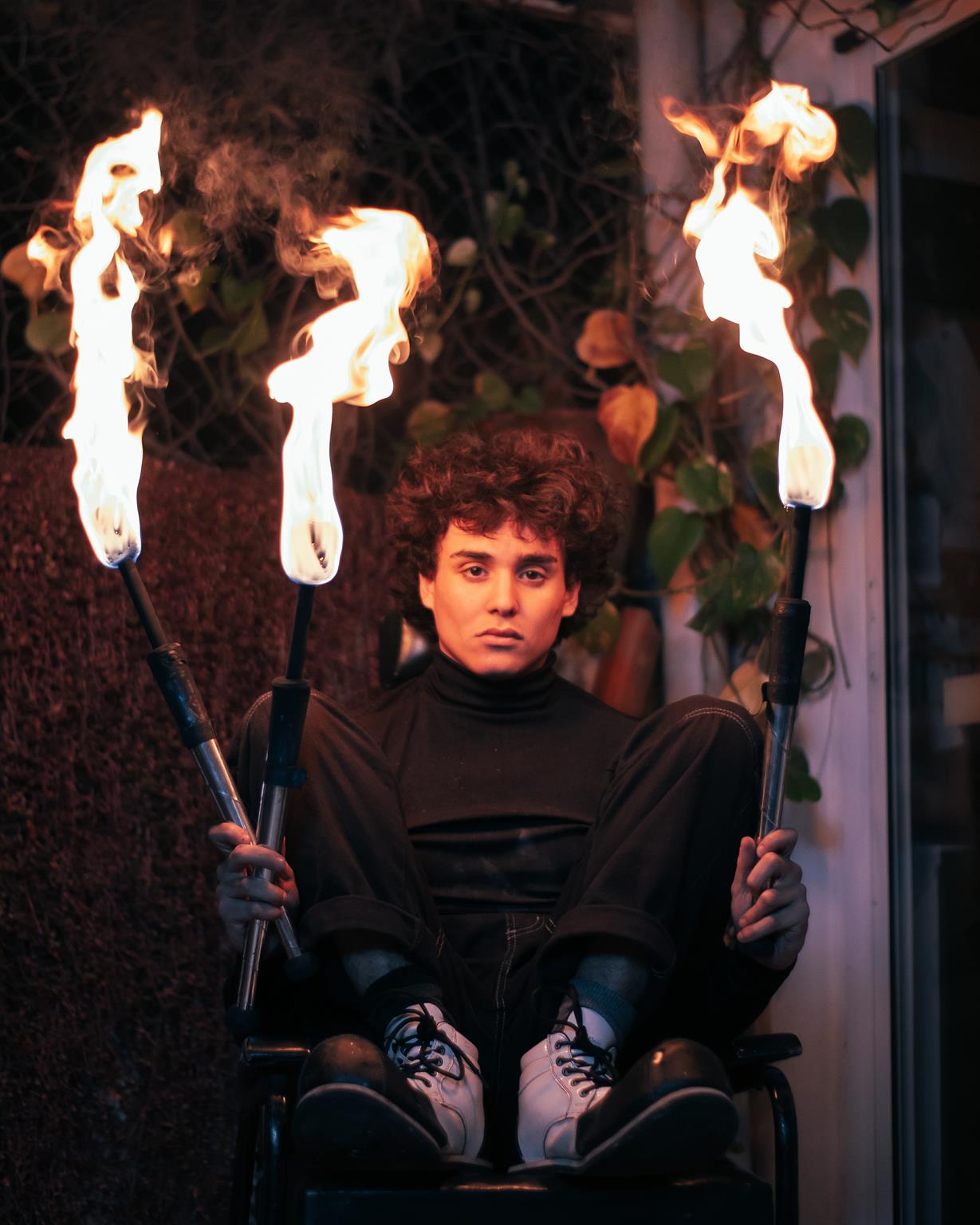
You recently opened up about your depression diagnosis at age 14. What was it like making the decision to talk about this publicly? Do you feel that playing Tomás in “BA: The Future is Dead” played a role in your healing process?
I don’t usually talk much about my depression, even asking for help after having identified the disease was the most difficult process for me. I chose to speak publicly, because I believe that the decision to pursue a public career also brings responsibilities and I feel that I can help people by sharing my experiences. We must talk about mental disorders, as they are diseases that can be treated.
And yes, playing Tomás and understanding the problems he goes through were processes that allowed me to gain a greater understanding of my depression and my problems. Understanding the character’s pains and dressing them, I was able to reflect on my pains. Understanding the character’s pleasures and dressing them, I reflected on my pleasures. It was an intense dive and I came out of it better.
With your film “SIM” being your first feature as a director, and “Adrenalina” as a new fictional short film, how do you see yourself balancing your career as an actor and director?
I don’t see myself balancing my acting and directing careers, I don’t even think I have a career as a director. I’m an actor. I’m an actor who directs, an actor who writes, an actor who produces, an actor who sometimes does camera, editing and whatever else I need to get ideas off the page, but always an actor.
I’ve been interested in directing since I was little and I think that taking on other audiovisual roles enhances my work as an actor and vice versa. I ended up becoming interested in working as a director and screenwriter and it has been a delight.
I had already directed some homemade shorts (both fiction and documentaries) and even won some awards. In addition to them, in 2020 I created two web series , one of them is called SONIDOS, and is a research based on everyday sounds and different textual genres. This is available on Instagram and YouTube. The other is called “They are watching me” and is a suspense/horror in short video format. It is available on Instagram and TikTok and has an illustrious cast: Linn da Quebrada, Jup do Bairro and Matheus Nachtergaele.
Last year I decided to embark on a new challenge as a director: the film “SIM”, my first feature, which is a documentary. It combines the language of cinema with performance, to debate artistic and social issues. We are in the process of editing the film, which is time-consuming, but I hope to be able to show it soon.
“Adrenalina” is a project that I am very fond of. A short film that I created to make together with the great filmmaker, critic, actor and cinema theorist Jean-Claude Bernardet, who I consider my affectionate grandfather (and who is even present in the film SIM). I can’t talk about what it is yet, but it’s a beautiful film that I wrote, I’m going to direct and act alongside him.
How do you approach creating complex characters like Tomás and Felipe? What is your process for bringing these figures to life?
I feel like each character has their own process, each one works in a different way, so I don’t have a specific method. Of course, I read a lot about different acting techniques, I’ve taken several courses and I always maintain active research (I’m even at the USP School of Dramatic Art).
However, I believe that the key to bringing any character to life is listening to them. Read the script carefully and ask your character questions – he always answers. It’s all within ourselves.
I like to do this intense research with the script and with my body and then move on to external references, which are always very important and welcome. I always ask directors (and preparers, if the project has one) for recommendations on films, books, series , etc. and I usually make a musical playlist for each character.
In “Eclipse” I talked a lot with Djin (director) about Felipe and I also exchanged with Lian Gaia (one of the film’s protagonists and a great actress) about the relationship between our characters.
In “BA: The Future is Dead”, in addition to the directors Mariana Youssef, André Ristum, Marcelo Mesquita and Denis Cisma, I exchanged a lot with Fernanda Rocha, the cast preparer, who followed the process and guided me in a sensitive and impeccable way.
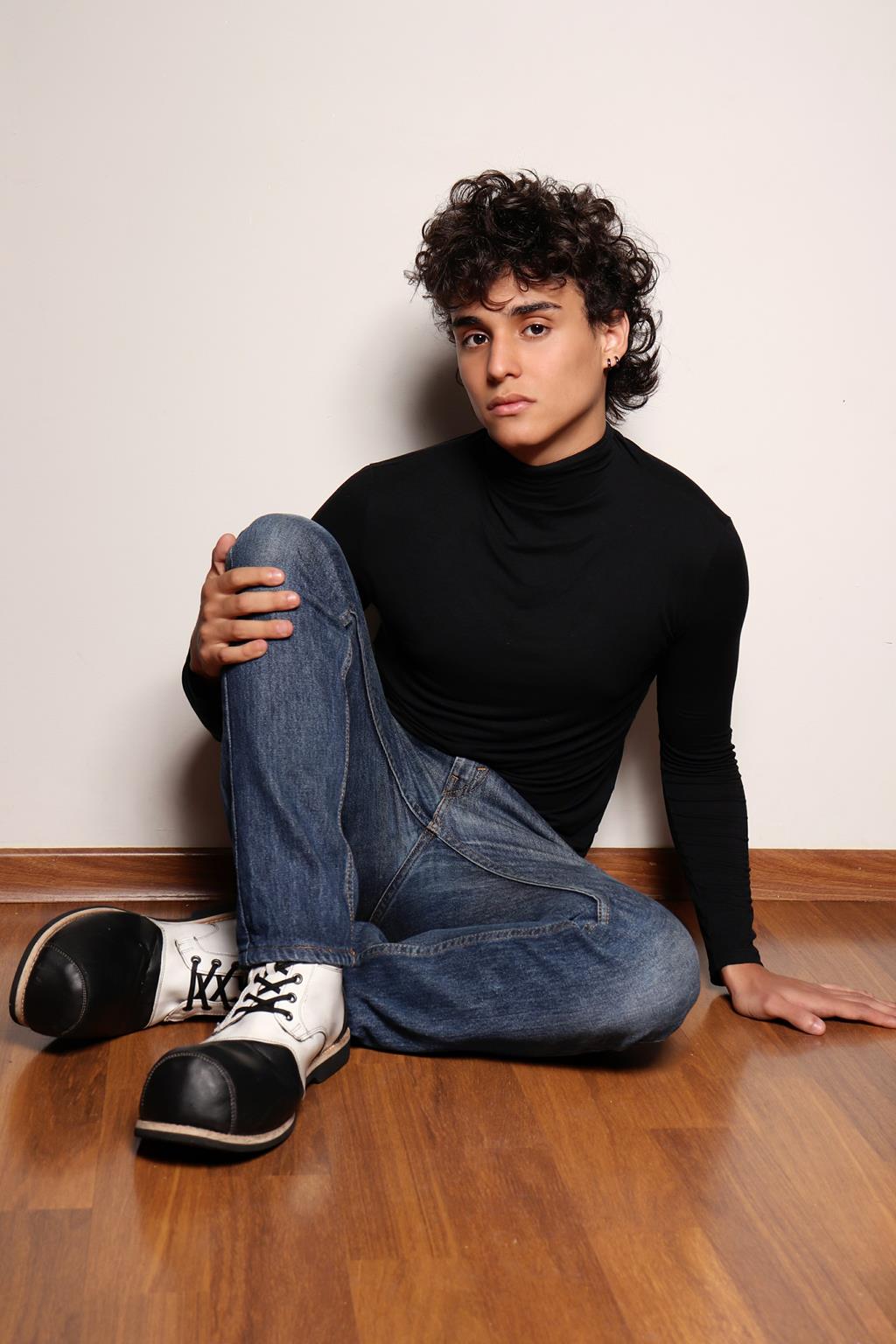
What was the most memorable or challenging moment on the set of “BA: The Future is Dead” or any of your recent work?
The most challenging moment for me in “BA: The Future is Dead” was certainly the final scene of episode 4 (which segues into the beginning of episode 5). To continue telling you I’m going to have to give a spoiler, so don’t say I didn’t warn you!
This scene is a suicide attempt. Tomás arrives in the room, starts drinking and laughing, this laughter turns into crying that gets worse, then he sits on the bed and a sequence of actions takes place. Doing this scene was a big challenge, not only because of the emotional charge of the performance, but also because it could trigger triggers in me. However, I felt ready.
The director of the episode was André Ristum. He took me aside – he knew it was a very difficult moment for me – and said “I trust you, you read the script, you know what the scene is like. I’m not going to give you any appointments. You know what to do.”. It was the best thing I could have heard. So, he called Hélcio Alemão Nagamine, an incredible director of photography, and said “German, have a camera in your hand and follow Pedro, there’s no appointment, I trust you”. We looked at each other and, together, recorded the scene in sequence, going through all the emotions in a dance between actor and photographer.
When the scene ended I left the studio, went to an outside area and cried again. Of relief, of happiness, of sadness that was left over from Tomás, a mixture of sensations. André came to me and said “I don’t even know if I should be telling you this, but I was sure the scene was going to be good, but I had no idea it could be THAT good”. Ufa. I achieved.
You mentioned that you are writing a feature film called “Terra Roxa” with Maurício Abbade , in which you will also star. What was this experience like, creating a script from scratch and, at the same time, preparing to play the lead role?
It’s been crazy. Writing a fiction feature is something I didn’t think I’d do so soon. I met Mauricio at the tests for “I would cross the whole city on a bicycle just to see you dance”, a short film that he directed and which premiered in 2024. I had just finished recording “Tarã” and I was called to test for the protagonist of this film. I took the test. In that first contact, we talked for so long that the camera battery ran out in the middle of the conversation and the audition was half done. I soon received the invitation to play Pedro (look what a coincidence, the character and I have the same name!) and during recording we realized that we had a very strong artistic harmony. We became friends.
Months later, Mauricio told me that he had an idea for his first feature film as a director and that he wanted me to star. He told me what he had thought and I complemented him. The rapport was so great that he invited me to write the film together. So that’s how it is.
We already have a version ready and now we are making changes, corrections and simultaneously in the process of making it financially viable, which is a very difficult stage. Writing a script that I’m going to act in is difficult. Sometimes I write a dialogue and there are lines that I really wanted to say, but that fit much more in the mouths of other characters, so I have to let go; It’s difficult to build a personality different from mine for the character; It’s difficult to build the entire narrative, with the events, creating a world that works logically and is interesting. The whole process is difficult, but it’s delicious and I’m loving it.
You mentioned that you’ve always tended to be a character in social situations. How do you balance this with the need to be authentic in your personal and professional life?
I have always carried a very strong social mask. That classic image of the clown with depression, of the apparently happy person, but in reality is deeply sad. Psychoanalysis and psychiatry have helped me a lot to dissolve this more and more. I try to be less of a character and try to find myself (if that exists). However, I’m an actor, building characters is part of my job, and sometimes it’s important even in situations outside of acting. The key is to try to understand how to dose. I really like what Jim Carrey says about this subject. He is a great inspiration.
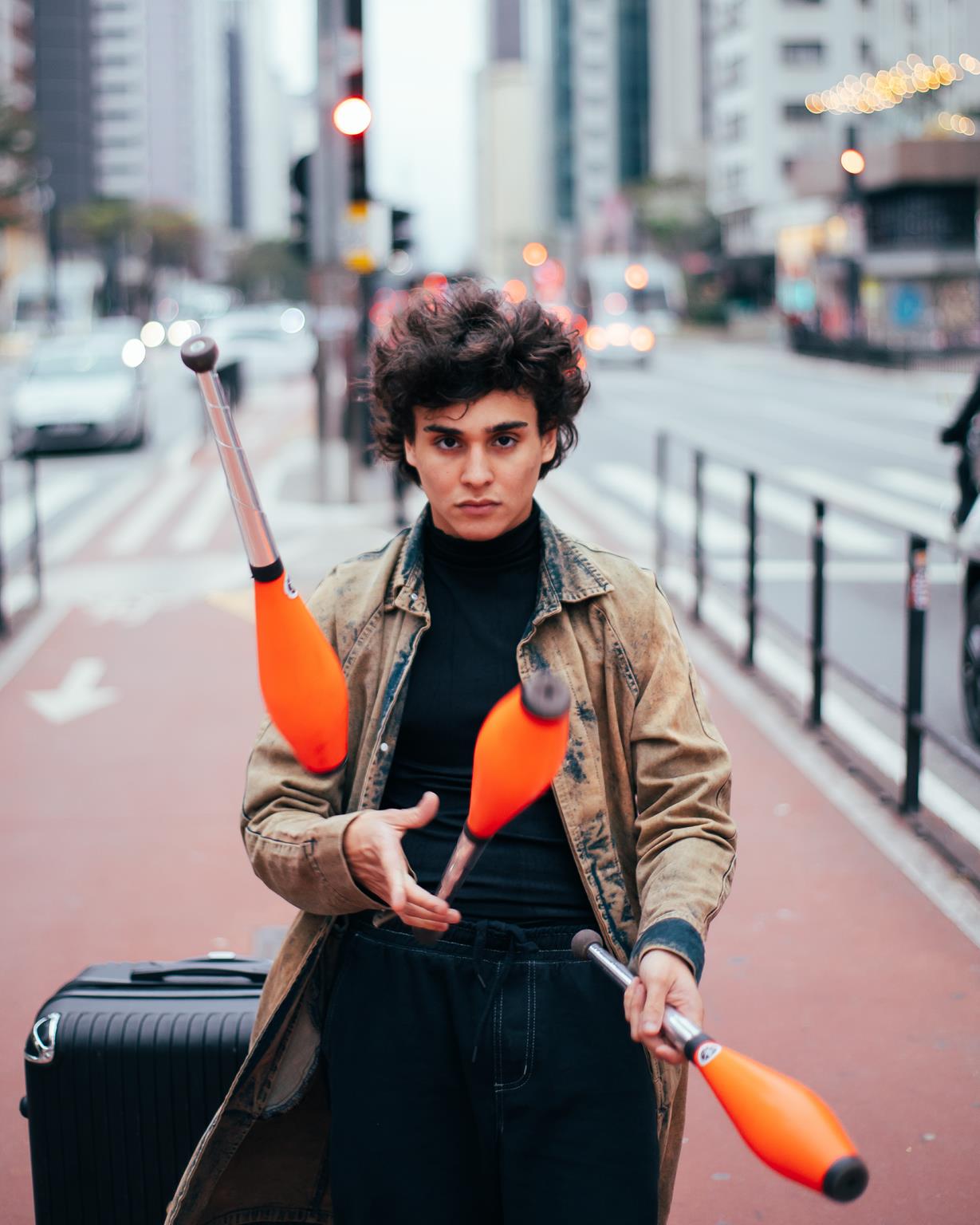
With so many projects and experiences to share, what is the main message you would like to leave with your fans, especially those dealing with similar challenges to the ones you overcame?
Honestly, what I wish is that people would listen more. I feel like everyone wants to talk and no one listens. Then people start talking louder, having crazier speeches and suddenly we are drowning in great insanity. I’m wanting to hear more and I suggest this to people. And really listen, trying to understand the other’s pain.
And I hope that people who don’t feel heard or comfortable speaking (as I often felt and feel) look for support networks. If you feel like you have some type of mental disorder, these things are treatable (and several places even offer this for free). Only health professionals will be able to help really improve these diseases and to do that you need to talk about them. Let’s go together. Living is difficult, but sometimes it’s good. Let’s live.
Follow Pedro Goifman on Instagram


